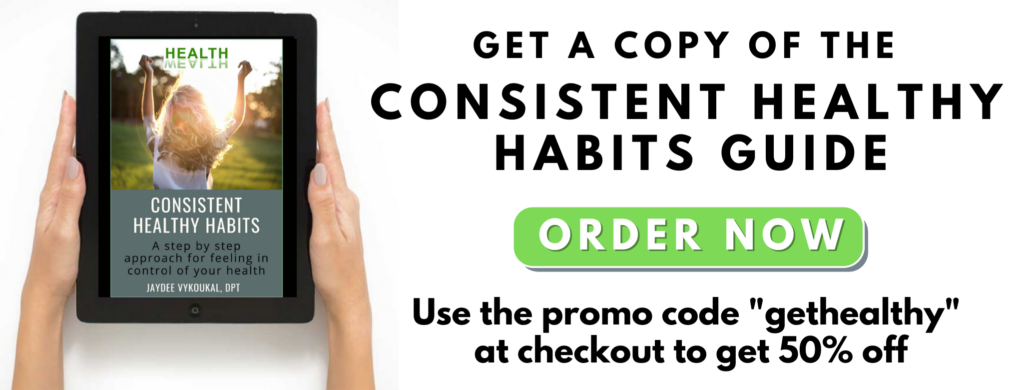Why Organic? The Pros and Cons of Shopping Organic
A decade ago we could find organic foods only in some health food stores. But by now these types of foods have become quite common at the regular supermarkets as well. Yet, many of us are still asking: why organic? What makes these products different from their conventionally grown counterparts?
If you also would like to get answers to these questions, you are at the right place. In the following, we will discuss the pros and cons of shopping organic. So you will know whether it is worth spending more money on these foods than on regular items. Ultimately it’s about finding a balance that fits your needs. Let’s get started!
What is organic food?
First of all, we need to make clear what we call organic food. A food product is considered organic if it was produced and processed without the use of any kind of synthetic chemicals. This includes chemical pesticides, fertilizers, and preservatives as well. Also, these products don’t contain genetically modified organisms (GMOs).
When it comes to livestock raised for dairy products, eggs, and meat, organically raised animals need to be fed biological forage, and can’t get any growth hormones, antibiotics, or animal byproducts.
Related read: Do I need to filter my water? Best countertop water filter system
The benefits of organic food
Now that you understand which food products can be certified organic, it’s time to find the answer to the question: why organic?
There are many reasons why these foods may be better for you and the planet. So let’s see which are the top benefits of shopping organic produce.
These products are fresher

Since organic foods don’t contain any preservatives that would make them last longer, the produce you can find at the supermarket tends to be fresher than conventional foods. This can also be because these products are most often produced on farms that are closer to the place where they are sold.
Related read: 30 Day Health Challenge Ideas: The Nutrition Edition
This kind of produce is healthier
Many people don’t know but several fruits and vegetables that we consider healthy can have quite high traces of pesticides. The Environmental Working Group (EWG) makes a list each year called the “Dirty Dozen”. This list shows which fruits and vegetables have more pesticide residue than others. This year, strawberries, spinach, kale, collard, and mustard greens are leading the list.
According to an EWG toxicologist, people should try to reduce their pesticide exposure as much as they can. And one of the best ways to do that is by choosing organic products whenever it is possible. This is because they are healthier due to the fewer chemicals (for example, synthetic herbicides, fungicides, and insecticides) they contain. Additionally, if a product has organic certification, it is GMO-free- which has also been shown to compromise the nutrient density of foods.
Related read: Is perfume bad for you? The dangers of fragrance
These foods often contain more nutrients

While non-organic fruits and vegetables most often get their nutrients from synthetic fertilizers, organic foods become nutrient-rich naturally due to the healthy soil. Very often, this also means that the produce contains more nutrients as well.
When it comes to milk and meat, a European study shows that they may be significantly richer in many nutrients such as omega-3 fatty acids than the regular versions.
Organic farming practices are better for your environment
If we take a look at how organic farming impacts the environment, we can see that this kind of farming is much better for the environment than conventional agriculture. It uses less energy, conserves water, reduces pollution, increases soil fertility, and decreases soil erosion as well.
Plus, it doesn’t use synthetic pesticides when growing fruits and vegetables, so nearby animals and birds are not exposed to these harmful chemicals.
Related read: Gardening Hacks to Yield More Produce
Organic labeled food products have better taste
The fact that organic agriculture uses more natural and environmentally friendly practices to produce fruits and vegetables can be a huge advantage regarding the taste of the foods. In general, this kind of farming gives more time to the crops to develop and this can result in better taste as well.
The cons of shopping organic
Buying organic foods has many benefits, including that they are better for your overall health. But are there any cons? Unfortunately, yes.
These products are more expensive

If you go to the grocery store and check the prices you will realize that these products are often more expensive than their conventionally grown counterparts. But why are organic foods more expensive? The higher prices can be explained by the high demand and the extra labor they require to be produced.
However, if you would like to buy organic foods while staying within your budget, the following tips can help you:
- Try to buy in bulk to save some money.
- Check if there are some foods on sale.
- Buy the organic version from those fruits and vegetables it matters the most. For example, in the case of the Dirty Dozen.
- You don’t need to buy organic from those fruits and vegetables that are on the EWG’s Clean Fifteen list because the conventionally grown crops are also low in pesticides. For example, avocados, sweet corn, pineapple, and onions are safe to buy non-organic.
- Go to the farmers’ market. In general, these markets are much cheaper.
- Check which fruits and vegetables are in season because at that time they are cheaper and fresher.
- If you have a garden, you can also grow your own plants at home.
The shelf life of these fruits and vegetables is shorter
Although biological fruits and vegetables are healthier because they are not treated with preservatives, it also means that they can spoil faster. Therefore, if you always want to have fresh organic food at home, you may need to go grocery shopping more often and eat what you buy in a timely matter to avoid wasting both food and money.
They are not necessarily safer
Organic foods don’t necessarily provide higher food safety. For example, like all foods, these foods can also be contaminated by many different foodborne germs such as listeria, salmonella, and E. coli and make you sick.
The bottom line
Why organic? Because all things considered, buying food free from chemicals is a great way to do something for your health and the environment. However, if you are worried about how much it would cost you, you should know that you don’t have to go all in. You can start with a few simple food swaps. For example, you replace regular eggs with organic ones, then the meat, then the strawberries, and so on. Find a balance that works for you- and remember that every little healthy change makes a difference.
Also, as mentioned above, some fruits and vegetables contain very few pesticides. So it is completely fine if you buy conventionally grown produce. And keep in mind that eating produce of any kind is still better than processed foods.

Related read: Tips for Eating a Plant-Based Diet
Do you often buy organic foods? How do you stick to budget? What foods to you always try to buy organic? I’d love to hear in the comments!





